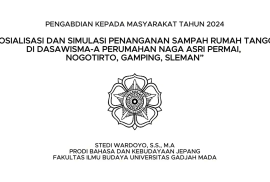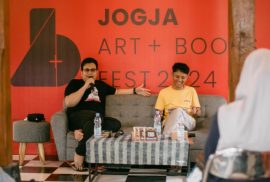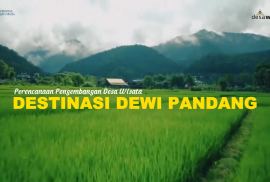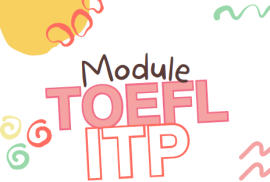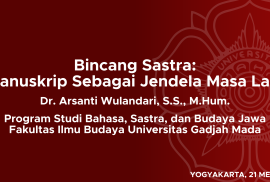The waste emergency that occurred in Yogyakarta and its surrounding areas due to the closure of the Piyungan Landfill (TPA) which experienced excess capacity had a negative impact on environmental problems, including in Naga Asri Permai Housing, Kwarasan, Nogotirto, Gamping, Sleman. Garbage that is not transported for a long time creates an unpleasant odor that pollutes the environment and invites insects, especially flies, to come and breed. Some residents also take the initiative to burn garbage in residential areas so that the burning smoke pollutes the air which can endanger health.
This problem has been going on for a long time and is likely to continue considering that until now the local government has not been able to overcome this waste emergency problem. For this reason, it is necessary to think and act together at the lowest level, namely the community, to help overcome this problem. If so far the handling of waste has only focused on downstream in the form of final disposal, it is necessary to think about how to deal with it from upstream. together to tackle it from upstream, namely households as waste producers.
Households as the largest producers of waste need to be involved in efforts to control and manage the waste they produce. The movement to reduce or minimize waste production through waste sorting actions, the 3R Movement (Reduce, Reuse, Recycle), and others, at the household level. Socialization activities need to be encouraged to raise awareness that the waste problem is a shared responsibility starting from oneself, family, immediate environment to the surrounding environment. For this reason, Stedi Wardoyo, S.S., M.A., lecturer in Japanese Language and Culture initiated socialization activities and waste handling simulations as a first step to raise awareness of residents in the smallest environment, namely Dasa Wisma A Housing Naga Asri Permai, Gamping, Sleman, which totals 14 heads of families.
Activities in the form of lectures and counseling related to waste management in the household scope. On the occasion, there was also a demonstration of processing organic waste into compost and bio-enzymes by environmental and waste processing practitioner, Mrs. Neni Widuri Lestari from Guwosari Training Center (GWTC) Pajangan, Bantul.

